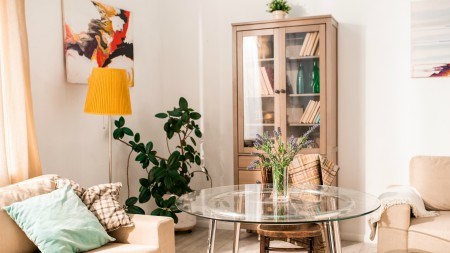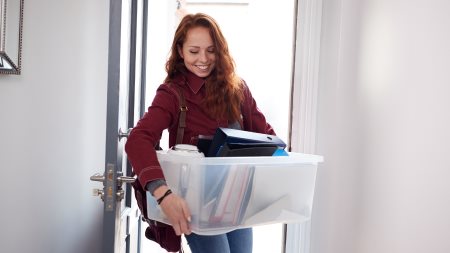What happens next for Airbnb and the rental market after the Covid-19 lockdown.
American businessmen Brian Chesky, Joe Gebbia and Nathan Blecharczyk created the online Airbnb business in 2008, which at the beginning of the year was worth, say some reports, around US31-billion, and is considered one of the most incredible business models in current times.
Established during a financial crisis, proving just how maverick their concept was, Airbnb presents a peer-to-peer platform brokering fully-furnished short-term lodging on behalf of its host clients, earning a commission from each booking. Its website states that Airbnb covers some 220 countries, with more than seven-million accommodations, and a total global guest record of some 40 000 000.
Airbnb announced its plans to go public in September last year, but now it has all come crashing down. Last week the organisation announced it will cut some 25% of its workforce; roughly 1 900 workers. It has also lowered its internal valuation down to US$26-billion, and, says The Wall Street Journal, has realised plunges in booking volumes of as much as 80 percent.
The economy-killing corona pandemic has similarly dashed the expectations of future income that South African Airbnb hospitality entrepreneurs were dependent on, given local and international travel restrictions. The ‘Superhost’ relief fund, set up by Airbnb to help hosts deal with those impacts, some US$17-million, is dependent on a number of criteria, not least of which is the term of the hosts’ cancellation policies.
Airbnb owners
In Gavin Fleming’s case, who hosts two such Airbnb properties in Randburg and the Drakensberg, the relief fund didn’t help much. “Payouts occur automatically for bookings made and cancelled within a certain window and cover 25 percent of what a host would have received based on the cancellation policy. For a cancelled booking at our R350 a night Randburg listing, which has a flexible cancellation policy of condition of up to 24 hours prior to occupation, we received zero relief payout.”
The Flemings are double-whammied in that the property on which they live and where one of their Airbnb sites is located, had been on the market for some six months. “It may have been an asset having an Airbnb when trying to sell prior to lockdown, now it’s a bit riskier because it’s difficult for potential buyers to ensure occupancy.”
Market analysts are predicting that the effects of coronavirus are going to be felt for as long as three years, with many people not terribly keen to stay in a stranger’s house, given a history of strangers that went before. There are also new cleaning protocols that require hosts to leave the listing vacant for 24 hours between stays so that airborne particles can settle, and the inclusion of a formal disinfection cleaning.
Lynn Kleinstein has a small Airbnb cottage centrally located in Sandringham. She has had to close completely since lockdown, which has put her financial situation under considerable strain given that the premises had previously been solidly booked since she registered on the site in July last year. “Although I’ve had many requests to reopen, and would be prepared to undertake the sanitization process as dictated by Airbnb, I would not want to put my family at risk of exposure.”
There is some hope for occupancy however; that of converting the Airbnb to a long-term rental, but Kleinstein is concerned that should the occupant lose their job during this period, she would have no insurance, and also potentially have a struggle to get them to vacate. “With Airbnb, insurance is taken care of, and up front the potential guest knows they have no option but to leave on the pre-determined date.”
Fleming also makes the point that there is not as much demand for furnished property, and that to make long-term rentals viable may mean hosts would need to store the existing furniture.
Airbnb conversion to long-term rental
Yet converting an Airbnb to a long-term rental it is still a consideration for those who are dependent on the facility to secure an income.
Already Airbnb stock is entering the residential rental market says Samuel Seeff, chairman of the Seeff Property Group. “These property owners are having to be somewhat accommodating to the market needs however, such as offering unfurnished units or competitive rental rates, failing which they risk vacancy periods and further financial losses.”
Jacqui Savage, National Rentals Manager for the Rawson Property Group, confirms what Seeff says. “Many owners of Airbnb properties were already converting to long-term rental in February and March and more have done so since the start of lockdown. However not all these properties remain fully furnished. Some landlords have removed furniture to allow tenants to move in with their own things. There is some demand for furnished apartments but the rentals are generally higher than for empty apartments, so these may not be as competitive in the current market.”
Seeff also suggests that Airbnb owners looking to fill their unit for short periods may find tenants who are attracted to the experience and luxury of an Airbnb for a while, “but for those owners who are reliant on the income, they should rather think about putting their units into the residential rental market for longer periods, of up to 12-months.
“They may not realise the same kind of rental returns that they would have achieved out of the short-term market, particularly since stock levels will be higher, but the appeal to tenants is that they may now be able to afford to move into a furnished unit in a sought-after area such as a beach apartment, which they may not have been able to afford in the past.”
Julie Pillay, long-term rentals manager for Chas Everitt International, Umhlanga, an area known for its concentration of Airbnb units given its scenic beaches, anticipates somewhat of a flooded market if Airbnb owners convert to long-term. “In the past two weeks, we have received requests from nine owners that used to short-term let themselves to help them find long-term tenants for their furnished units as soon as we are able to operate. In fact, some landlords have already substantially reduced rentals in the hope of being first to secure a tenant and conclude a lease.
“Meanwhile, we have had a few enquiries from prospective tenants on some adverts placed but these have not been for the high-value properties and in a crowded market we do anticipate downward pressure on rentals as the effects of the Covid19 crisis cause people to re-evaluate their spending ability going forward.”
Will rental prices fall?
Herschel Jawitz, CEO of Jawitz Properties says that although it is difficult to tell at this stage if any sector of the residential market is going to benefit from the lockdown restrictions, affordability will benefit tenants if rental prices fall. “If they fall it is because of the affordability to pay rent in the short-term, which is, unfortunately, a lose-lose for lessors and lessees.
“Affordability keeps a brake on rental escalations in the short- to medium-term, so while there may be more rental demand, be that for Airbnb or traditional rental properties, it will take some time before that can be translated into higher rental prices. Factor in that it may be a while before corporate travel picks up, and even longer for leisure travel to begin, the impacts on Airbnb require that adjustments have to be made to this type of model both in terms of price and rental duration.”
Jawitz says that the key driver going forward will be value and price. “For those that can stay within their budget and can now afford a better home, there may be great opportunities. Lessees could also potentially be looking to pay less for what they are currently renting.
“In the short-term though, there simply aren’t going to be any winners. There is just too much financial stress in the market for anyone to really benefit,” says Jawitz.





